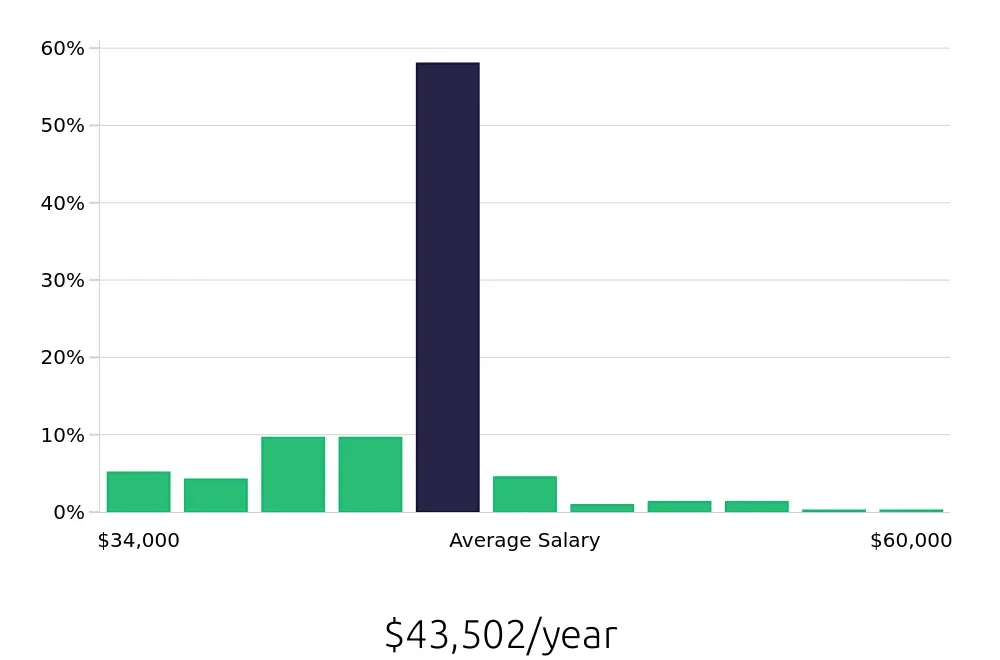Position
Overview
A butcher plays a crucial role in providing fresh, high-quality meat to customers. This professional cuts, trims, and packages various cuts of meat from animals such as cows, pigs, and lambs. They work in grocery stores, butcher shops, or meat processing plants. A butcher must be skilled in using knives and other tools to cut meat into specific shapes and sizes. Attention to detail and a steady hand are essential for this job.
The butcher also interacts with customers, taking orders and providing recommendations. They ensure that meat is stored at the right temperature to prevent spoilage. Many butchers develop a deep knowledge of different cuts of meat and their uses in cooking. This expertise helps them suggest the best cuts for various recipes. By doing so, butchers contribute to the culinary experience of their customers, offering products that meet diverse needs and preferences.
Becoming a butcher is a rewarding career choice. This profession involves cutting, trimming, and selling meat. It requires a steady hand and attention to detail. The following steps outline the process to start a career as a butcher.
First, gain basic knowledge about butchery. Learn about different types of meat and how to cut them. Consider taking a butchery course. This will give an understanding of meat and butchery techniques. Second, find an apprenticeship. Seek a job with an experienced butcher. Learn hands-on skills in a real work environment. Third, practice regularly. The more time spent cutting meat, the better the skills will become. Fourth, obtain a food handler’s permit. Many regions require this for food-related jobs. Ensure all health and safety standards are met. Finally, seek certifications. Some butchers choose to become certified butchers. This can enhance credibility and open more job opportunities.
Follow these steps to become a skilled butcher. With dedication and practice, anyone can succeed in this trade. Each step builds the knowledge and skills needed for a successful career.
Pursuing a career as a butcher often starts with formal training. Many butchers complete a certificate program. These programs usually last between a few months to a year. Some apprenticeships offer hands-on experience that can last up to two years.
During the training, students learn essential skills. They practice cutting, trimming, and wrapping meat. They also learn about food safety and hygiene. This training helps butchers prepare for the job market and ensures they are skilled and knowledgeable. Employers often value butchers who have completed formal training.
We are seeking a skilled Butcher to join our team. The ideal candidate will have a passion for preparing and selling high-quality meats. This role involves working with fresh ingredients, ensuring product quality, and maintaining a clean and safe working environment.
Responsibilities:
Qualifications
Working as a butcher involves preparing meat and poultry for customers. This job offers both challenges and rewards. A butcher must have a keen eye for detail and a steady hand. This career can lead to opportunities in retail, wholesale, or even in the food service industry.
Butchers work in various settings, such as supermarkets, specialty meat shops, and restaurants. Each environment has its own set of requirements and rewards. In a retail setting, a butcher interacts directly with customers, providing personalized service. A wholesale butcher focuses more on large orders and supply chain logistics. Working in a restaurant requires quick thinking and teamwork.
Here are some pros and cons to consider:
However, there are also some challenges:
The job outlook for butchers remains steady, with an average of 41,700 job positions per year according to the Bureau of Labor Statistics (BLS). This stability suggests consistent demand in the industry. Butchers who master their craft can find good job opportunities in various retail and food service sectors. The expected 0.1 percent change in job openings from 2022 to 2032 indicates a stable career path for those entering this field.
Butchers enjoy a competitive average national annual salary of $38,350, as reported by the BLS. This compensation reflects the essential role butchers play in the food supply chain. Hourly wages average around $18.44, providing a fair return for their skilled labor. With experience and expertise, butchers can expect to see increases in their earnings over time, enhancing the financial viability of this career choice.
For job seekers, becoming a butcher offers a blend of steady job availability and respectable earnings. The skills gained in this profession are valuable and transferable, allowing for career growth and potential advancement within the food industry. Aspiring butchers should focus on gaining hands-on experience and continuing education to enhance their marketability and earning potential in this stable field.
